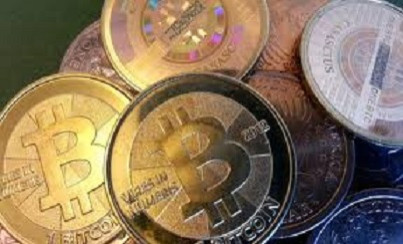Federal Magistrate Says Bitcoin Is Real Money As He Allows SEC Suit To Go Forward In Ponzi Scheme Case

A U.S. Magistrate in Texas ruled on Tuesday that an SEC suit can proceed against Bitcoin, and that the Internet-based virtual currency is real money.
Eastern District of Texas Magistrate Judge Amos Mazzant wrote in his opinion that it's "clear that Bitcoin can be used as money" because "it can be used to purchase goods or services."
The magistrate made the ruling in a suit filed by the Securities and Exchange Commission against Trendon Shavers of Bitcoin Savings & Trust. The SEC is arguing that Shavers' Bitcoin investments “meet the definition of investment contract, and as such, are securities,” according to a Reuters report.
The SEC warned investors against potential scams involving virtual currencies like Bitcoin on July 23, the same day it filed charges against Shavers, alleging that the Texas man essentially used money from new investors in his Bitcoin endeavor to cover withdrawals by older investors and his own personal expenses.
Shavers challenged the SEC’s case against him, saying the regulator has no jurisdiction to sue him because the Bitcoin investments he offered are not securities or subject to any U.S. regulation, because Bitcoin is not money.
Mazzant's ruling could have important implications for digital currencies, which are not regulated by the United States, according to Reuters.
Bitcoin exists through an open-source software program, and its supply is controlled through a computer algorithm. Users can buy Bitcoins through exchanges that convert real money into the virtual currency.
Bitcoin is also becoming well-known in other countries. While Thailand recently became the first nation to outlaw Bitcoin pending further investigation, the virtual currency is gaining popularity in China.
China is no stranger to virtual currencies, and Bitcoin may give the Chinese a means to skirt currency controls imposed by the government, according to Quartz. China's government currently has no way to track or crack down on Bitcoin, making it even more appealing to the average person.
China is the second largest Bitcoin market in the world, behind the U.S., according to Tech in Asia, and the currency's popularity was given a boost recently after favorable news reports aired on state media.
Part of what deters governments from adopting the currency is its lack of regulation and infrastructure for government oversight, according to Kristov Atlas, author of an upcoming book on anonymous Bitcoin use. It is a pseudo-anonymous currency, which also makes it easier for people to conceal earnings and income and avoid paying taxes on them, another reason governments will be keen either to regulate the currency, or ban it outright, like Thailand did, the Asian Correspondent reported.
“Bitcoin offers the world a scenario in which the government has no control over the money supply,” Atlas said.
Bitcoin is also appealing to people with low incomes, according to Atlas, as the currency does not require a bank account, and the low financial barrier, including the low transaction fees, make it attractive to those who have little money to begin with, the Asian Correspondent said.
© Copyright IBTimes 2025. All rights reserved.





















